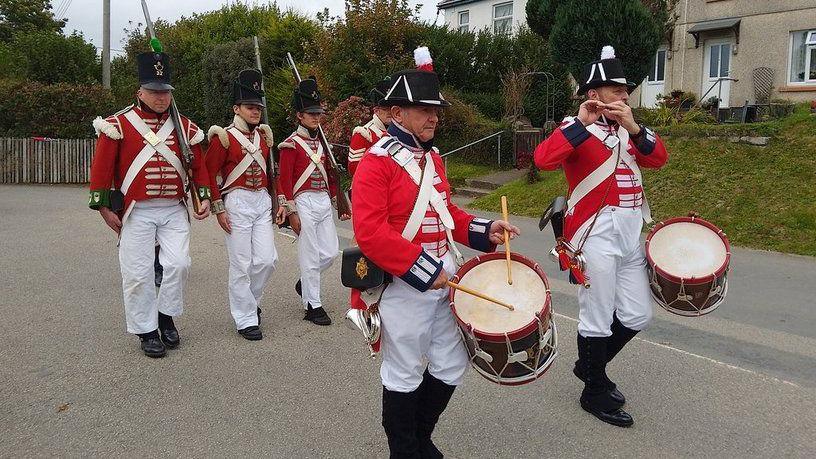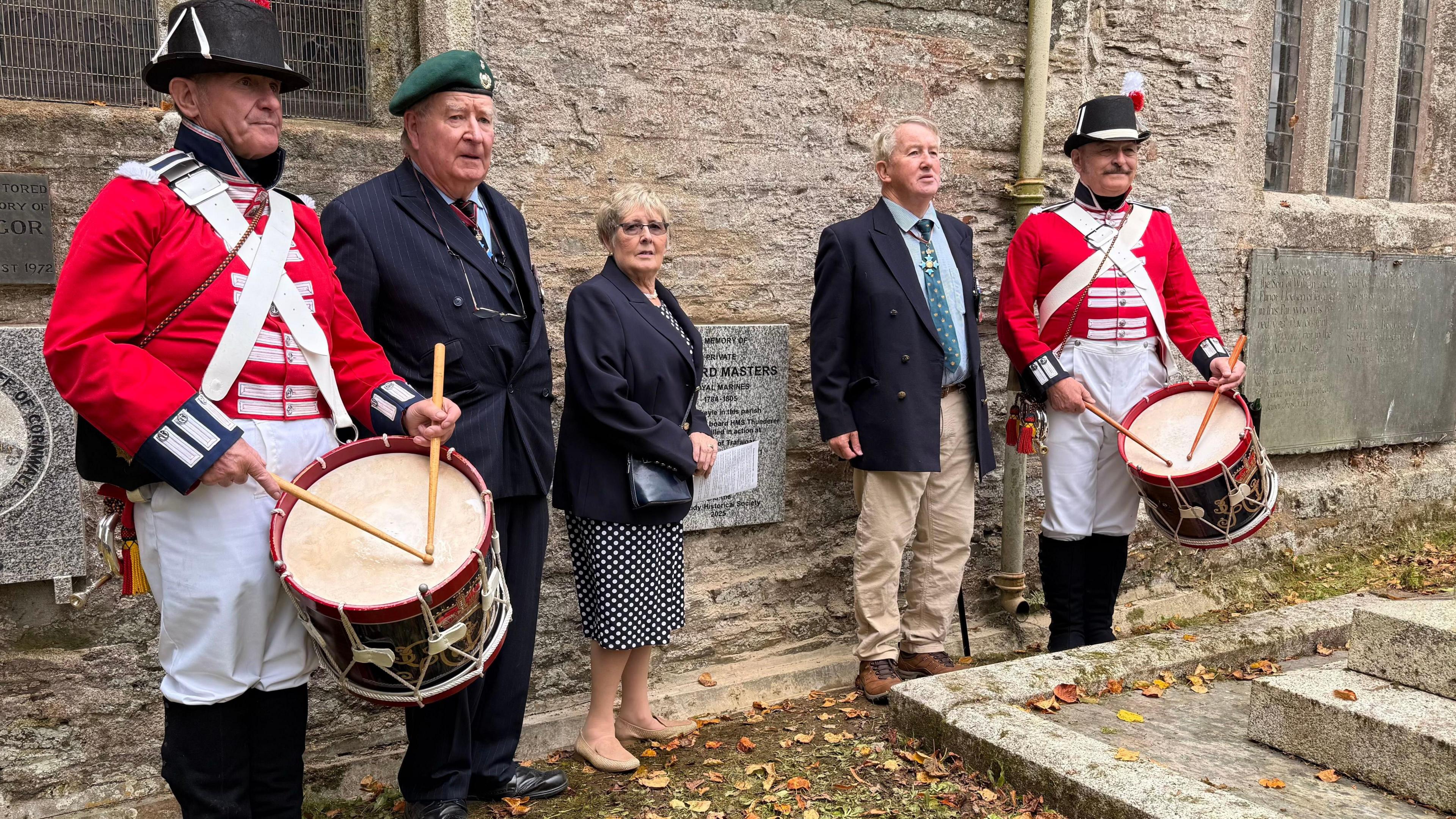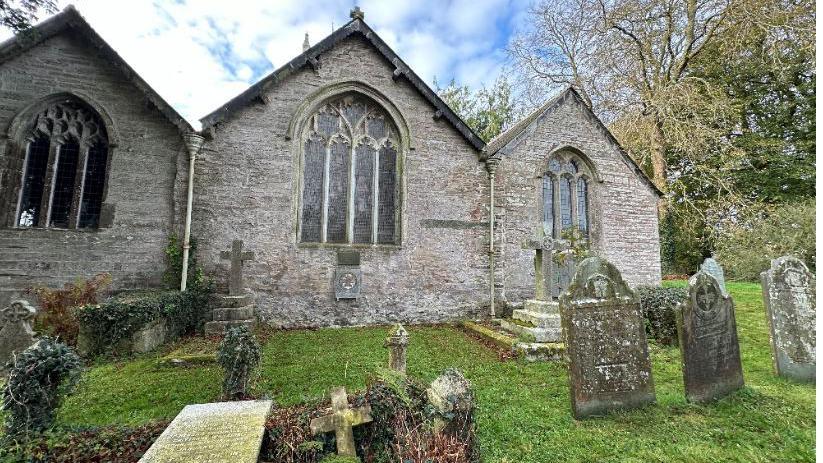Cornishman killed at Trafalgar 'brought home'

Members of the Plymouth Maritime Corps of Drums honoured Pte Richard Masters
- Published
A plaque commemorating the life of a Cornishman who died at the Battle of Trafalgar 220 years ago has been unveiled in a musical service.
Pte Richard Masters of the Royal Marines, from St Tudy, was only 21 when he was killed in action in October 1805 and buried at sea.
Organisers said more than 100 people attended the service at St Tudy Church including dignitaries from around Cornwall, the Padstow Sea Cadets and members of the Plymouth Maritime Corps of Drums.
Angela Aylward, of the St Tudy Historical Society, said: "He represents all the young men who went to battle for whatever reason and never came home."
Ms Aylward, who instigated the honour, said it was a way of "bringing him home".
"It's very rare, if not unique, for a man from the ranks and from a lowly background to be honoured in this way," she said.
"His body would have been overboard and, as they say, he would have had no grave but the sea, so that's why I was thinking the history group could do a memorial to him."
Pte Masters was the son of a labourer and had been a member of the Cornish Militia before he was enlisted in the Royal Marines in Plymouth in May 1805.
He saw action on his ship, HMS Thunderer, in the Battle of Cape Finisterre in July 1805, before he was killed at Trafalgar.

The plaque has been placed on the eastern wall of the church
The 1805 club, which helps preserve graves associated with Georgian era navies, partnered with the historical society to create the memorial.
Honorary secretary Stephen Howarth said the plaque's location on the eastern wall of the church was fitting.
"The strange thing is that there was a space on the wall where our plaque has gone, and which is grouped by amazing good luck near four family graves of the Masters family," he said.
"It's as if that space had been waiting for us to fill it.
"Something I found very touching indeed was that this event, which has actually been two years in the making, has resulted in a beautiful plaque which will be there for centuries."
Follow BBC Cornwall on X, external, Facebook, external and Instagram, external. Send your story ideas to spotlight@bbc.co.uk, external.
- Published22 September
